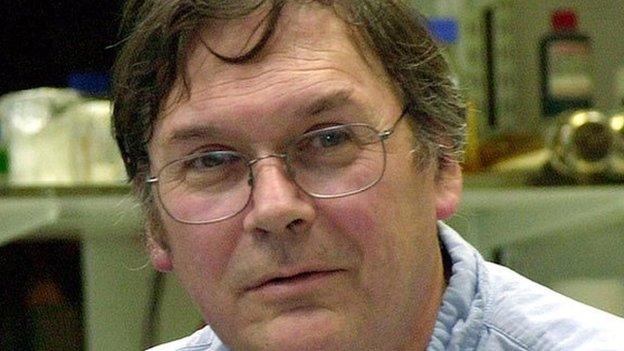What's it like for women in science?
- Published
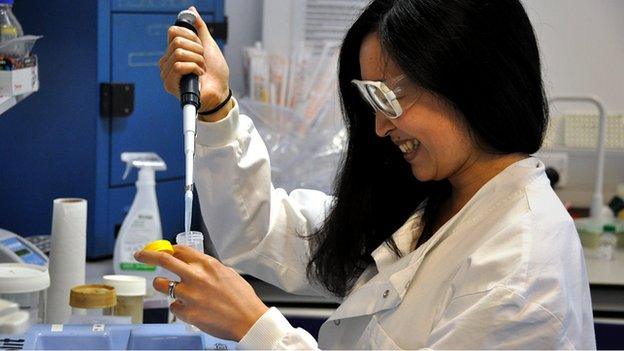
Scientist Natsuko Macabuag says women aren't the ones getting overly emotional in the lab
Nobel laureate Sir Tim Hunt has resigned from his position as honorary professor at University College London (UCL) after he made controversial comments about the "trouble with girls" in science.
But what is it like for women who study and work in the field? We asked women from UCL to tell us about their experiences, why they chose science and whether women really do cry in labs.

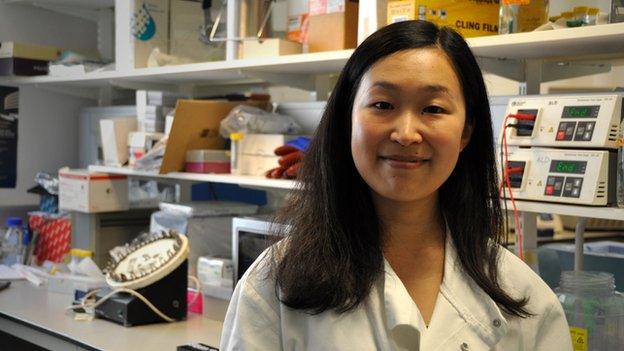
Natsuko Macabuag, 31, is a PhD student at the department of Neuroscience, Pharmacology and Physiology
I was hugely influenced by my teachers to study science at GCSE and A-Level. I liked biology and chemistry and so a degree in biochemistry seemed a perfect option.
I really believe that any positions in science should be based on ability rather than anything else and, from my experience, biosciences have a fairly even gender balance, especially when compared to other areas like engineering for example.
I haven't faced any specific discrimination but I do think it can be harder for women if they have to take time off for maternity leave. It can slow your career progression and make it harder to move up.
And no, women don't go around crying in the lab. I've seen more men getting angry and frustrated than I have women crying over a stressful job.

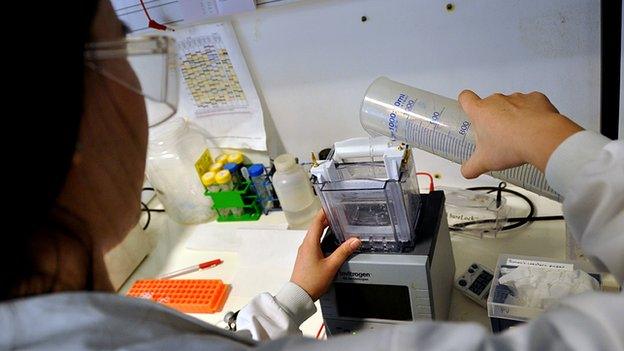
Martha Robinson, 25, is a PhD student at the Institute of Ophthalmology
I've never been told that I don't belong in science but I do think women are treated differently within the sector. There are so few women at the very top and I think progression is really hard.
Women's competencies are often described differently. You hear a lot of "proficient" and "good at experiments" rather then "highly intelligent and insightful", which men get and suggest someone is more professor-level.
I once worked on some programming and a male professor suggested "you could make it pink".
I also went to a conference that had encouraged more women to attend but many men saw it that we were only there because we were women and not because we were as good as them. I was just quite shocked about how blatant they were about saying those things to us.
I also think women have a hard time challenging what their seniors say about them, as the industry is so dependent on recommendations and I don't think women feel comfortable challenging them.
It can make women's aspirations more limited if they see that it is going to be much tougher for them.

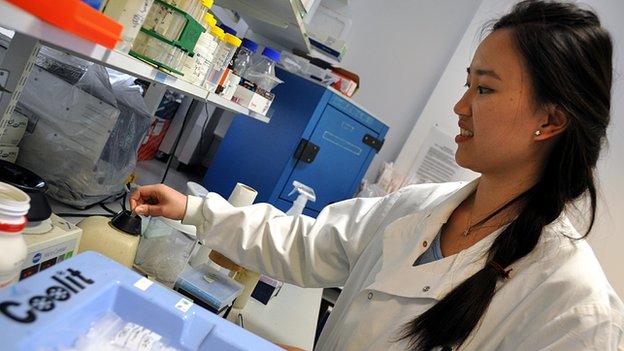
Shu Ho, 23, is studying for an MA in Pharmacology
I went to a school that specialised in maths and science and when I started the line of boys was much longer than the line of girls. But by the time I left six years later it was much more even, so changes have happened even in a short time.
There are so many career opportunities for women in science and I don't feel at this stage that anything is off limits.
I've personally always enjoyed labs where there is more of a balance of men and women, as they can be much more productive and nicer environments but really I think it's much more down to personality than it is to gender.

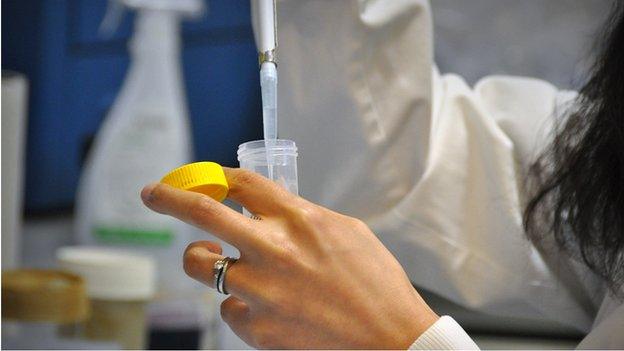
Dr Hiranya Peiris is a cosmologist and reader in astronomy
I always wanted to be an astronaut when I grew up and was really into science from a young age.
My parents were both civil engineers, and growing up in Sri Lanka studying physics and maths was never seen as a boys thing to do.
But since then I've had very different experiences. I see girls in my groups who are much less confident than boys, even though often they are much better students. I think it's from decades of these attitudes being reinforced.
It's not from outright incidences of sexism but 1,000 small cuts that all add up.
After I made an appearance on the BBC's Newsnight talking about astronomy a newspaper columnist suggested I was only on the programme because I was a woman. It hadn't even crossed my mind that anyone would think that and it was so upsetting.
At the moment a few exceptional and hardy women make it to the top of my field of research but a lot of women leak out of the pipeline along the way.
I really believe that equality will only be reached when average women get the same opportunities that average men do.

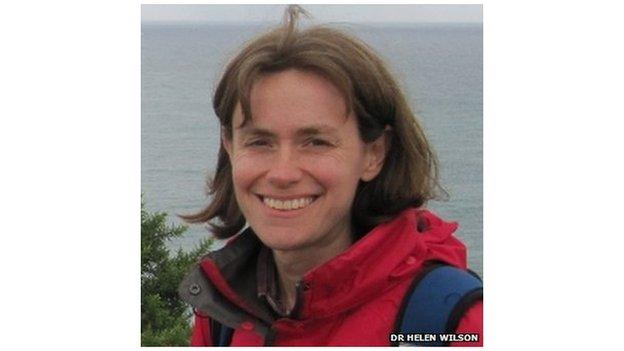
Dr Helen Wilson, 42, is an applied mathematician
I always knew I wanted to do a maths degree. My school was pretty good at encouraging me and I never felt it was something I was being persuaded against, but then I've also never really felt the need to conform, so maybe that's why I just stuck with what I was determined to do.
I did notice the gender difference when I got to university though. About a quarter of the people on my undergraduate degree course were female and the proportions went down and down after that, which makes you more aware you are in the minority.
There are just as many career opportunities for women in this area but I wonder if the perception is very different or whether it comes down to a confidence issue among some women.
I have two young children but I've always found it to be a very family friendly career. I am in a research job, so my hours are more flexible, but I know this isn't the case for women who work in lab science where it isn't always that easy.
I didn't take off a huge amount of time when I had my children. Research can move on quite quickly and I was aware of that and it wasn't always easy getting back into work.
- Published11 June 2015
